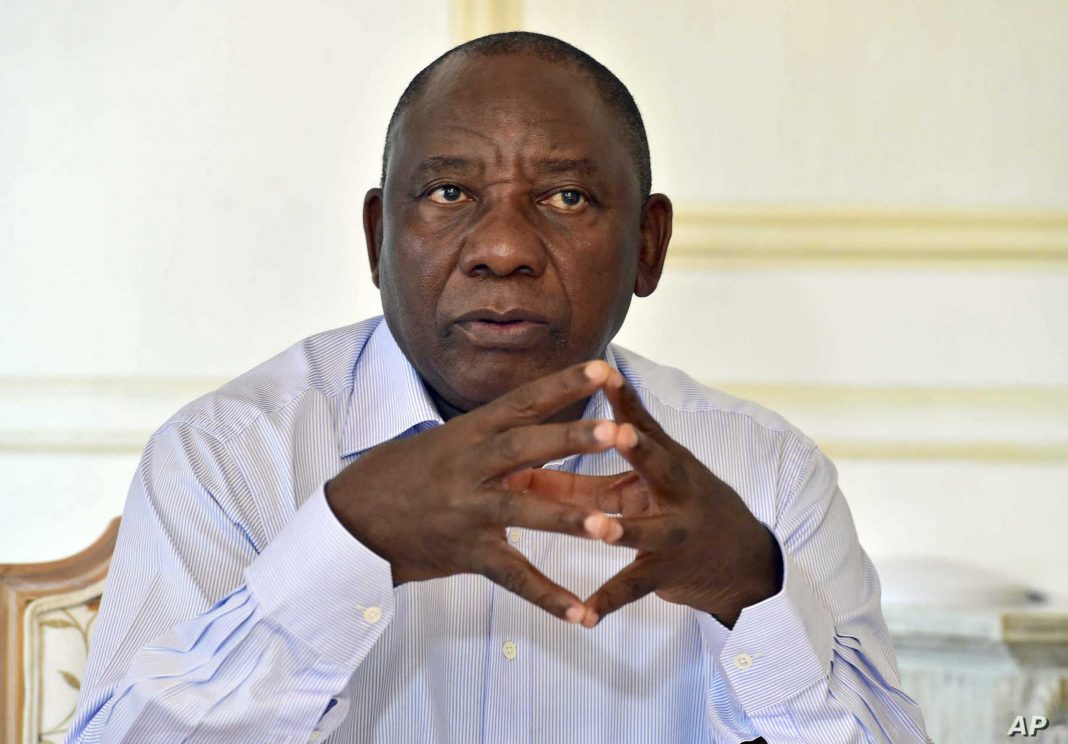Charles Molele
President Cyril Ramaphosa announced on Wednesday that consultations are underway to move the country to Level 3 of the nationwide lockdown by end of May.
Ramaphosa told South Africans that some parts of the country with higher infection rates of COVID-19 would remain under Level 4 Lockdown and that changes to that level of restrictions would be announced in the coming days after consultations with various stakeholders.
He pointed out that the country’s hardest-hit cities are set to keep lockdown restrictions in place as the rest of the country emerges from Level 4 lockdown.
Months into the crisis, the Western Cape, Gauteng, Eastern Cape and KwaZulu Natal remain the epicentres of the country’s coronavirus, having recorded more than 90% of the national total of confirmed cases.
In March, the National Coronavirus Command Council recommended that metros which are regard as epicentres should remain under lockdown, adding that these would pose a huge challenge to government as they are the main drivers of the South Africa’s economy and its growth trajectory.
“For now, infections are mostly concentrated in a few metros and districts in our country. It is important to maintain stringent restrictions in those areas and to restrict travel out of these areas to other parts of the country,” said Ramaphosa.
“We will immediately begin a process of consultation with relevant stakeholders on a proposal that by the end of May, most of the country be placed on alert level 3, but that those parts of the country with the highest rates of infection remain on level 4. We will make further announcements after the completion of the consultations.”
Advancing through the stages will depend on factors such as how the rate of infection evolves, the number of intensive care beds available and compliance with social-distancing rules, said Ramaphosa, without providing concrete thresholds for how these measures would be evaluated.
“In the coming days, we will also be announcing certain changes to level 4 regulations to expand permitted business activities in the retail space and ecommerce and reduce restrictions on exercise,” he said.
“Some have questioned whether our approach in dealing with the coronavirus has been at the expense of the livelihoods of our people. Our strategic approach has been based on saving lives and preserving livelihoods. Our key objective has always been to slow down the infection rate through a number of interventions in our coronavirus prevention toolbox. Each of these prevention measures are crucial and non-negotiable.”
The Health Ministry said shortly after the president’s live address that some areas of the country would indeed be designated at a particular alert level, while others may be designated at other levels.
The ministry said this would be done according to the rate of infection in an area and the state of readiness and the capacity of its health facilities to cope with treating patients.
As of Wednesday evening the total number of confirmed COVID-19 cases in South Africa stood at 12 074.
“Out of the 12,074 confirmed cases in South Africa, we have recorded 4,745 recoveries and 219 deaths. Our field workers have now screened over 9 million people, and we have conducted nearly 370,000 coronavirus tests,” the health ministry said in a statement.
“The lockdown has worked. Without the lockdown the number of coronavirus infections would have soared uncontrollably, our health facilities would have been overwhelmed and many thousands more South Africans would have died.”
While Ramaphosa led the country from the front and has made an unprecedented announcement of a R500 billion economic package to deal with an extraordinary situation, he has been under pressure to lift the lockdown and allow some form of economic activity.
Reacting to his address, the DA’s interim leader John Steenhuisen dismissed Ramaphosa’s balancing act between the economy and a health crisis, saying the country needs to get back to work immediately.
“President Ramaphosa is attempting to defend the indefensible. This lockdown has cost more lives than it has saved. Millions of jobs and lives have been destroyed,” said Steenhuisen.
“We repeat our call for the national lockdown to end swiftly. It is not a rational strategy, and has not been so for weeks. It is irrational and disproportionate to the scale of the risk that Covid poses, relative to other risks. And it has not been supported by an adequate safety net for poor people and small businesses.”
Steenhuisen said Ramaphosa delivered a speech but said very little.
“Essentially, he doubled down on what has been a tragically flawed approach that has wreaked catastrophic, unnecessary and possibly irreparable damage to our country,” he said.
“South Africa’s economy and society must be opened up now, to save lives and livelihoods from all types of risks, not just Covid.”
Business for SA’s Martin Kingston told a media webcast last week that a minimum of one million jobs are set to be lost, but up to four million jobs are on the line as a result of the expected economic fallout from the Covid-19 pandemic.
The business body is forecasting that the GDP could shrink by between 10.3% and 16.7% – significantly higher than forecast from the South African Reserve Bank, National Treasury, Moody’s and IMF of around 6%.
“Despite the government’s Covid-19 economic stimulus and relief package, we are expecting SA’s GDP in 2020 declining between around 10% and 17%… In addition, between a million and four million formal and informal sector jobs are at risk,” Kingston said.
In his address, Ramaphosa argued that government’s approach has been to steadily increase economic activity while putting measures in place to reduce the transmission of the virus and provide adequate care for those who become infected and need treatment.
“Some of the actions we have taken have been unclear, some have been contradictory and some have been poorly explained. We will make mistakes but I can assure you, we will correct those mistakes,” said Ramaphosa.
This is how some South Africans reacted to Ramaphosa’s address:

